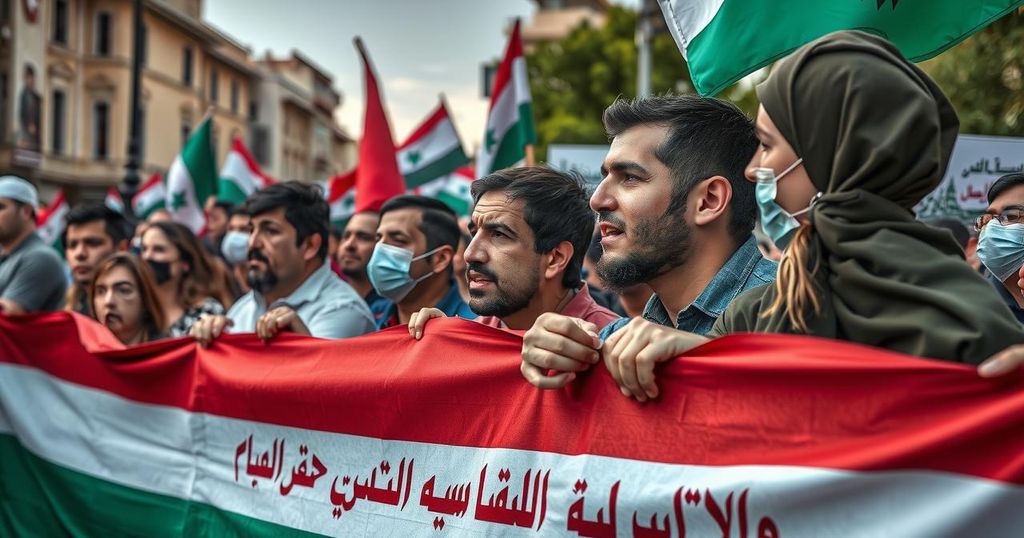Hundreds protested in Tripoli, Lebanon, demanding the release of Islamist detainees arrested after returning from Syria, where they fought against Assad’s regime. Protestors, reflecting on the fall of Assad, called for increased pressure on authorities for the release of individuals jailed for participating in the Syrian conflict. The event underscores ongoing legal and human rights concerns surrounding these detainees.
On Sunday, a significant protest occurred in Nour Square, Tripoli, where hundreds of demonstrators called for the release of Islamists detained during the Syrian civil war. Many of these individuals are Lebanese nationals who traveled to Syria to participate in the rebel struggle against President Bashar al-Assad’s regime, only to be arrested upon their return home. The protest aimed to exert pressure on Lebanese authorities for the release of all Islamist prisoners held in relation to the conflict that has persisted since 2011.
The ongoing civil war in Syria has created a complex humanitarian and political situation in the region, significantly affecting neighboring Lebanon. Many Lebanese individuals participated in the conflict, often supporting various rebel groups against the Assad regime. Those who returned to Lebanon faced arrest, raising questions of legality and justice, especially in light of claims that their actions were motivated by solidarity with the Syrian struggle for freedom and democracy. The protesters’ demands reflect broader issues of human rights and legal processes within Lebanon.
The demand for the release of Islamist detainees in Lebanon highlights the ongoing repercussions of the Syrian civil war and the lingering impact of past political affiliations and actions. As calls for justice and fair trials persist, the need for legislative action, such as a general amnesty, remains a pressing issue for the Lebanese government to address. The outcome of these protests may influence future policies regarding detainees and the relationship between the Lebanese authorities and the affected communities.
Original Source: www.al-monitor.com






